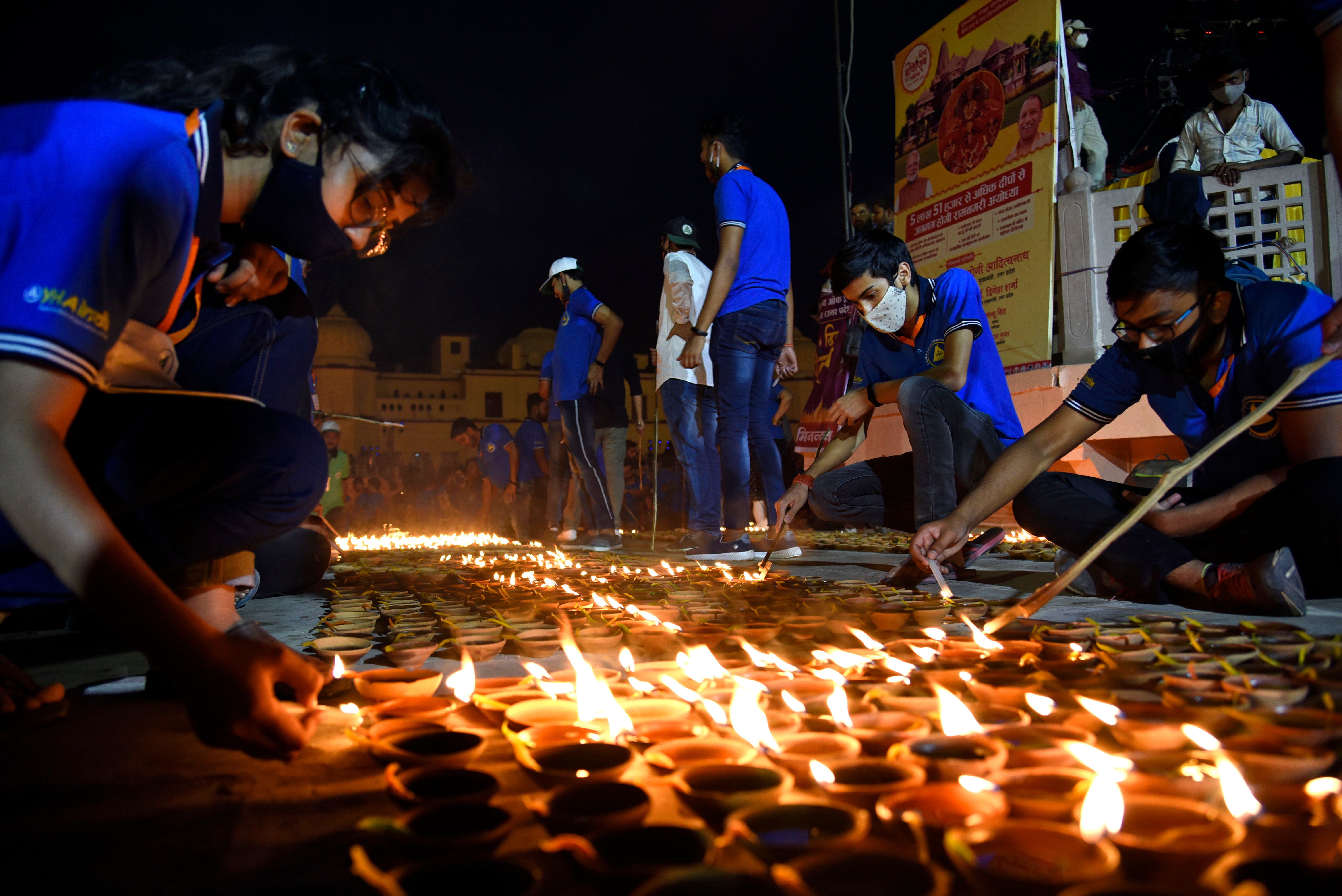Indian holy city lights record number of oil lamps
The north Indian city of Ayodhya has kept its Guinness World Record for a second year by lighting 584,572 oil lamps and keeping them burning for at least 45 minutes as part of the celebration of Diwali, the Hindu festival of lights

Your support helps us to tell the story
From reproductive rights to climate change to Big Tech, The Independent is on the ground when the story is developing. Whether it's investigating the financials of Elon Musk's pro-Trump PAC or producing our latest documentary, 'The A Word', which shines a light on the American women fighting for reproductive rights, we know how important it is to parse out the facts from the messaging.
At such a critical moment in US history, we need reporters on the ground. Your donation allows us to keep sending journalists to speak to both sides of the story.
The Independent is trusted by Americans across the entire political spectrum. And unlike many other quality news outlets, we choose not to lock Americans out of our reporting and analysis with paywalls. We believe quality journalism should be available to everyone, paid for by those who can afford it.
Your support makes all the difference.The north Indian city of Ayodhya kept its Guinness World Record for a second year on Friday by lighting 584,572 oil lamps and keeping them burning for at least 45 minutes as part of the celebration of Diwali, the Hindu festival of lights.
Thousands of volunteers lit the lamps, called diyas, along the Saryu river's banks, through lanes and at houses as dusk fell in Ayodhya, where Hindus believe the god Ram was born and where he returned after 14 years in exile.
The city lit 409,000 oil lamps last year.
Uttar Pradesh state government spokesman Shishir Kumar said the lamps were a stunning spectacle for thousands of visitors who thronged the river banks while ignoring coronavirus social distancing norms.
Representatives from Guinness World Records handed over a certificate to Yogi Adityanath, the state’s top elected official, after monitoring the ceremony with drone-mounted cameras, Kumar said.
This year's festival of lights comes after India’s top court allowed the construction of a temple to Ram in Ayodhya, ending a long legal battle between Hindus and Muslims over ownership of the land.
Hindus believe that a temple existed on the spot which was demolished by Mughals in the 15th century who built a mosque there. Hindu radicals demolished the mosque in 1992 during the legal battle.